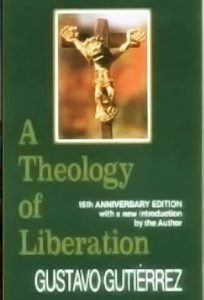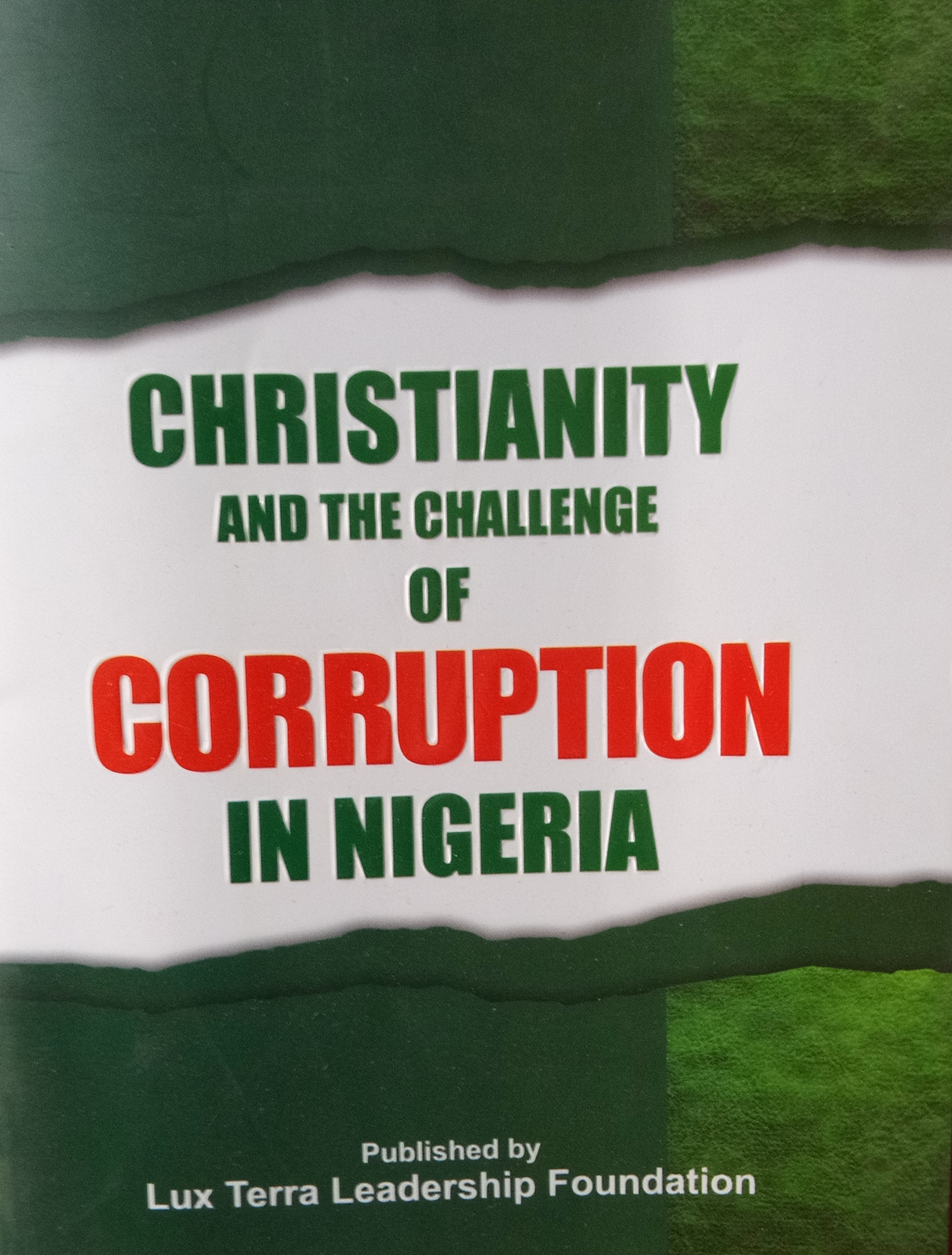No one who claims to have seen it coming might be challenged. The paradox of a deeply religious but also a very corrupt society is what almost no one can escape in Nigeria. But it ought not to be possible to have a society that is religious but also corrupt because, as this booklet makes very clear, none of the two dominant religions to which most Nigerians belong permits that. It is in that sense that the arrival of Christianity and Islam coming together to take on corruption can be seen as the arrival at last of a variant of Liberation Theology politics peculiar to Nigeria.

 A Liberation Theology assault involving Christianity and Islam can be inferred because, at the time Intervention got the booklet some six months ago, it was with a promise that the Islamic version would follow. Subsequently the text was forgotten until a few days ago when a chance meeting brought it back to memory. Within this time, the Islamic version might have been ready or actually circulating. It would be interesting to read it. For, if a religious discourse should emerge, it is bound to benefit from the constitutive force of ideas, norms and values in shaking the status quo faster than materialist explanations offered in class, capitalist and civil-military explanatory models. The contradiction might be at the class level but, in so far as meaning is contextual rather than foundational, the spheres of ideas, values, norms and identities such as religion are the battlegrounds.
A Liberation Theology assault involving Christianity and Islam can be inferred because, at the time Intervention got the booklet some six months ago, it was with a promise that the Islamic version would follow. Subsequently the text was forgotten until a few days ago when a chance meeting brought it back to memory. Within this time, the Islamic version might have been ready or actually circulating. It would be interesting to read it. For, if a religious discourse should emerge, it is bound to benefit from the constitutive force of ideas, norms and values in shaking the status quo faster than materialist explanations offered in class, capitalist and civil-military explanatory models. The contradiction might be at the class level but, in so far as meaning is contextual rather than foundational, the spheres of ideas, values, norms and identities such as religion are the battlegrounds.
In any case, there is something of Liberation Theology in the booklet’s recommendation of unleashing the social teachings of the religions on adherents – from parents to their children, teachers, students, politicians, leaders of socio-cultural groups, youths, all categories of workers, staff of security agencies, senior staff of public institutions and management staff of private corporations, (P.35). This aspect of a booklet published in 2018 might still be in the works. It would be nothing less than Islam and Christianity mobilizing the co-operative aspect into liberation of a society from corruption which the book calls “the single most critical factor that explains how such a richly endowed country like Nigeria could be so stagnated and rendered so volatile with widespread political instability and social insecurity”, (P.1).
That is an example of the many controversial statements in this booklet but to which there can be no challenge because the editors could locate almost all such claims in the Bible. That is to say that, by the time the Islamic version of the book is available, something of a theological assault on corruption might have happened. It is thus a good way of entering the war against corruption by starting with a theological narrative of what is corruption and how it contradicts religious life. Fighting corruption is a discursive practice, not an objective exercise. Yet, there is no Nigerian discourse of corruption beyond Peter Ekeh’s sharp look at it indirectly from the perspective of how colonialism shaped corruption in Nigeria, nay Africa. The idea that “we all know what corruption is all about” has robbed the country of a more robust sense of the subject and, by implication, the fight against the scourge. A reductionist view has reduced most phases of the war to anti-fraud campaigns.

Archbishop Kaigama, spoke against flamboyant spirituality and noisy liturgy

Cardinal Onaiyekan, credited with painstakingly reading the manuscript of this booklet
This booklet is different in that respect. In fact, no one can claim after reading it that s/he doesn’t know what corruption is all about. Nine pages of its Appendix is devoted to a listing of all imaginable acts of corruption and why it is so. This is likely to be the same in the Islamic version of the book being published or already published by the Minna based Islamic partners of the editors of this book. This is not just at the level of faithfuls but the internal critique of religion as can be found in this booklet, ranging from the attack on inhuman and costly rites of passage to the menace of ‘prosperity gospel’ elements within the Church, for example. Their predilection for what Archbishop Ignatius Kaigama, for example, once called “market place prophecies and visions, … melo-dramatic displays that look like modern broad-way shows…flamboyant spirituality and noisy liturgy” instead of “sober Christianity without tricks, rhetoric, fanfare and the craze for social media publicity” has been an issue for some time now as can be seen in what Archbishop Kaigama was saying in February 2016. Apparently echoing him, the authors argue that “the wave of destructive materialism via the ‘prosperity gospel’ is quietly permeating the society, taking hold in some Christian communities and threatening to supplant “the old time religion” handed down to us by the apostles”, (P. 23).
On the whole, the authors of the booklet believe time is actually running out. In the Foreword by Reverend George Ehusani, there is a summoning to the idea that “… the organism we call Nigeria can only bear a certain level amount of rot and decay, beyond which it is certain to collapse”. Nigeria, said he, is still managing to exist as one single political entity “in spite of everything we have done to destroy ourselves”, (P.3) but there might be no remedy if Nigerians keep piling infidelity upon infidelity instead of changing direction from unbelievable acts of corruption to which it attributes nearly every malaise suffocating the country: mediocrity, brain drain, infrastructural decay and deficit, divestment, capital flight, collapse of mega-national corporations such as NITEL, Nigeria Airways, high rate of unemployment and the associated rise of criminality.
Coming from the lens adopted, it is probably too much to expect any mention of the interesting argument promoted by some development scholars some years back that corruption plays a re distributive role. There is also nowhere the international political economy is explicitly implicated in the dynamics of corruption beyond the footnote mention of capital flight. Politicians are blamed in the booklet but nowhere are successive political leadership blamed for corruption in Nigeria. Certainly, all politicians cannot be corrupt. But even with these misses, the booklet is still a powerful mobilisational document. Great that it costs nothing to own a copy. MacArthur Foundation whom the authors acknowledged has funded the publication to a point that it is boldly printed there that it is to be freely distributed.




























